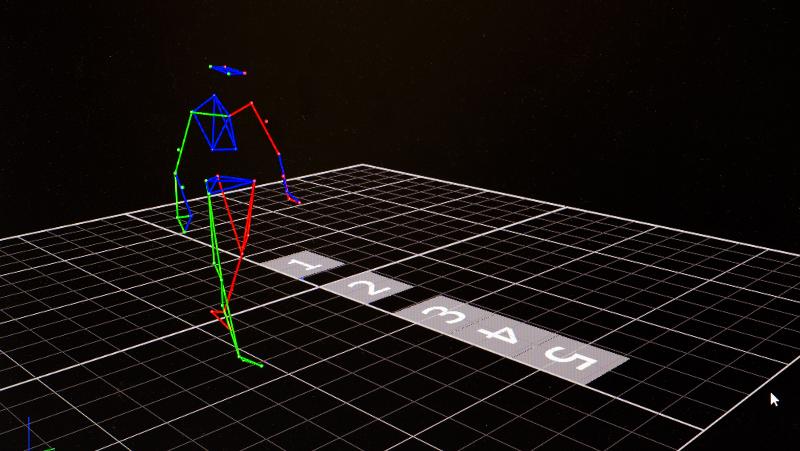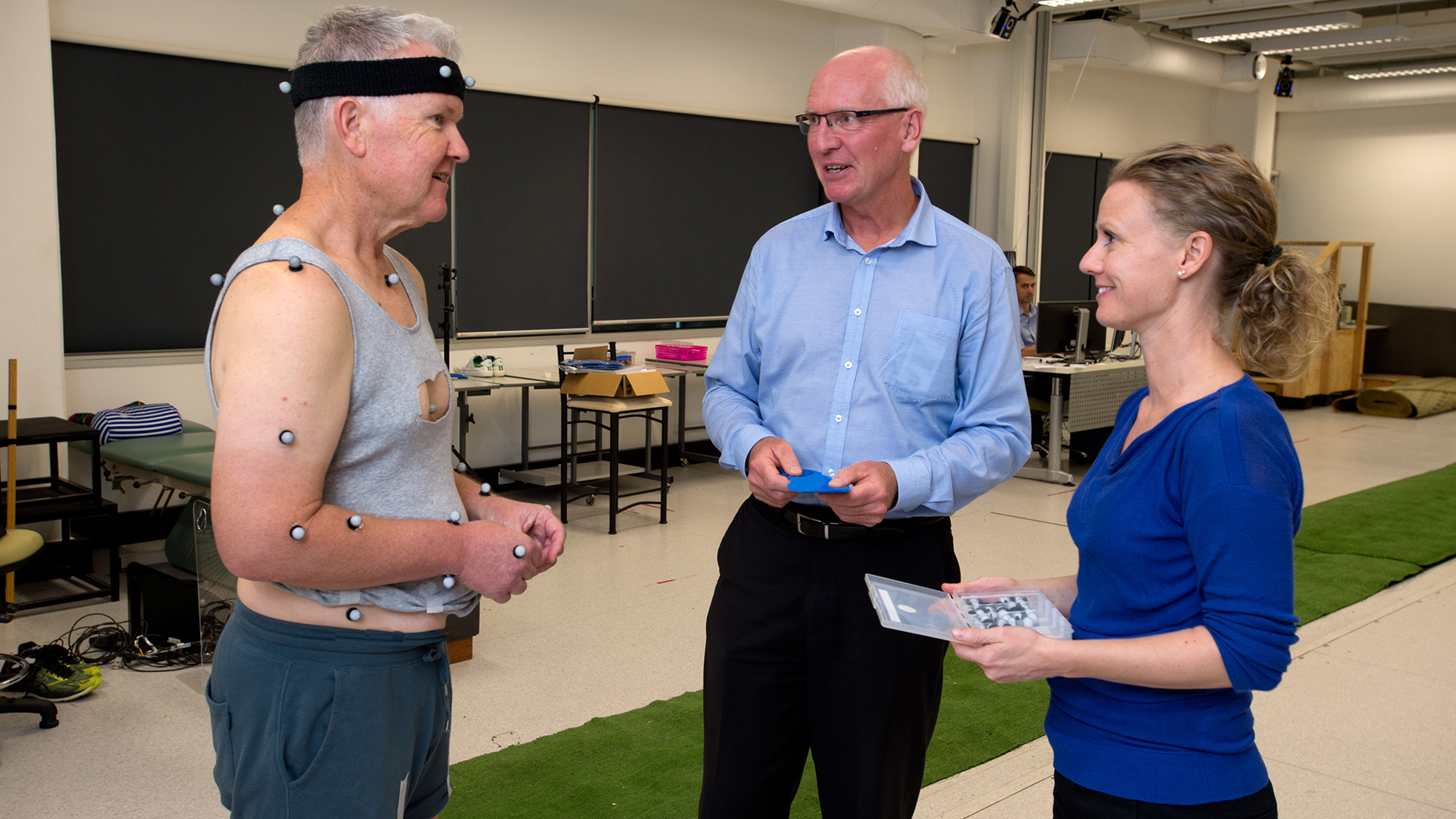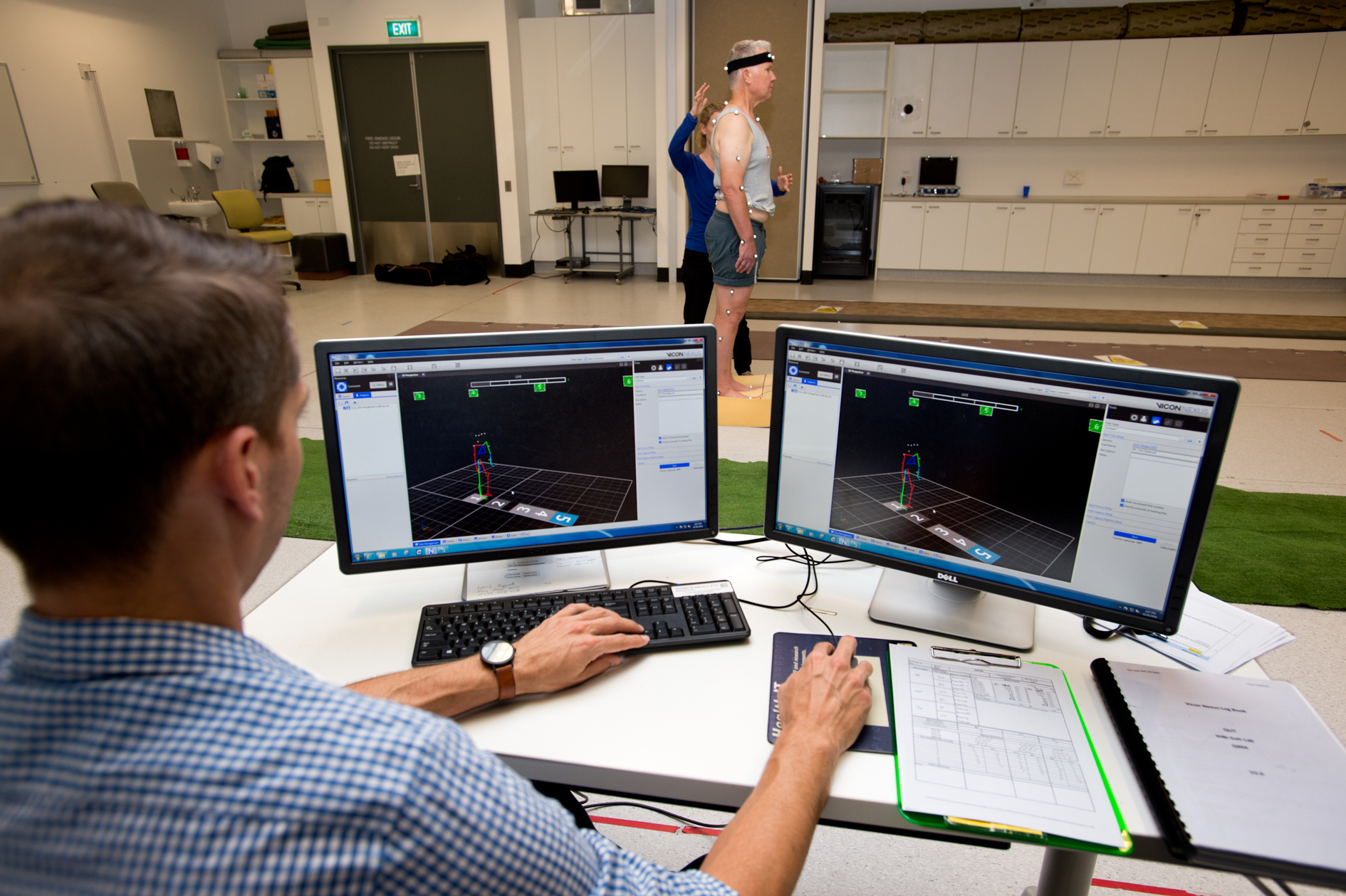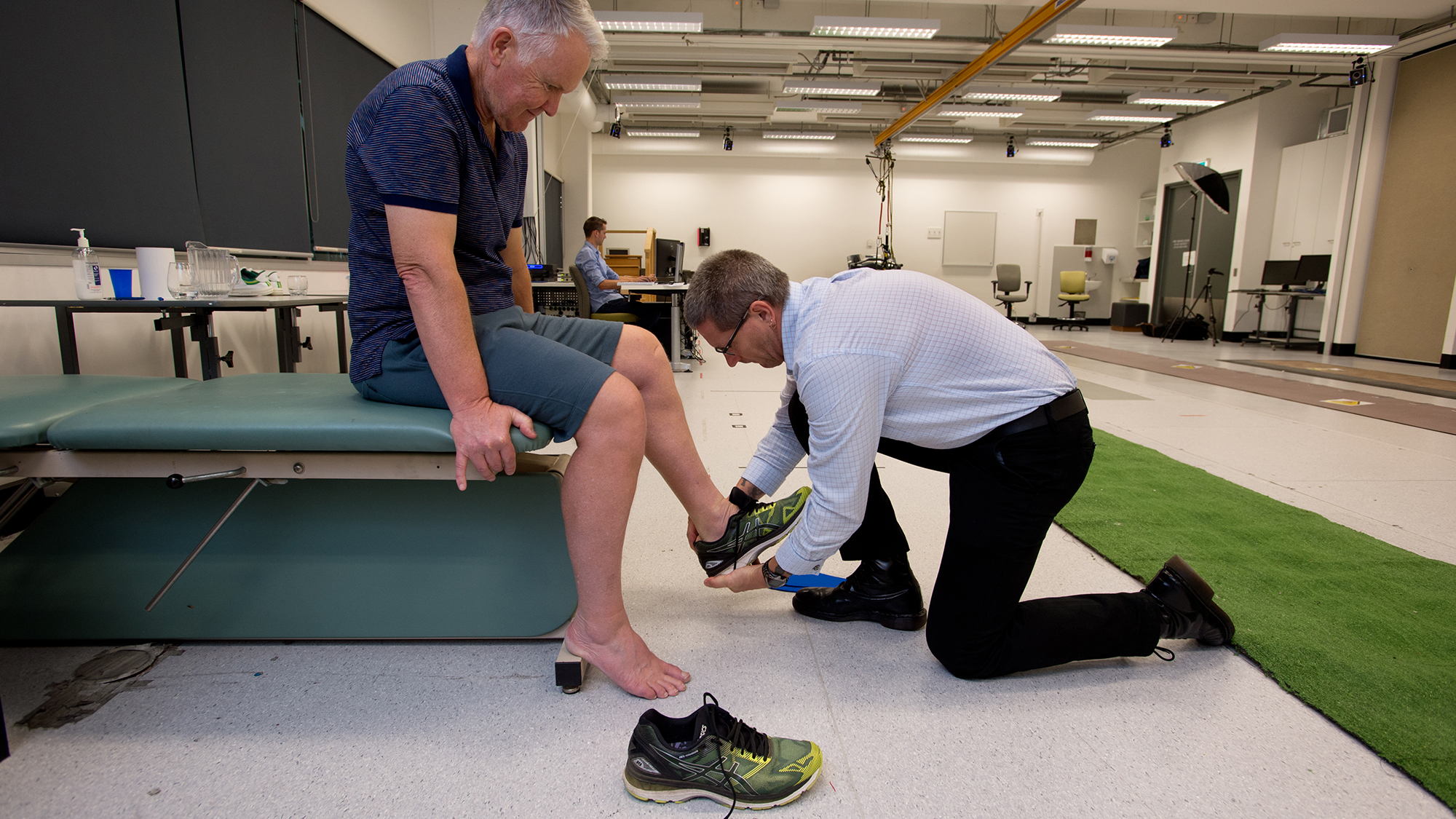
QUT researchers are investigating whether textured foam insoles they have designed are effective in improving balance, walking, and reducing falls among older Australians, including those with Parkinson’s disease.
- Volunteers aged 55 to 85 are taking part in a research trial
- Trial involves healthy older people and those diagnosed with Parkinson’s disease
- It is part of a six-year study funded by the National Health and Medical Research Council (NHMRC)
- Study follows previous QUT-led research which has demonstrated positive effects of textured insoles on standing balance in older adults and people with Parkinson’s
- Researchers are seeking more volunteers for this trial
Study lead researcher, QUT neuroscientist Professor Graham Kerr, said the textured insoles had been designed to stimulate receptor cells on the soles of the feet – cells which send neural information about balance, posture and walking via the somatosensory system.
“The somatosensory system is a complex system of sensory neurons and pathways that sends signals from various receptor cells on the skin and inside the body via the spinal cord to the brain,” Professor Kerr said.
“The soles of the feet contain many of these receptor cells. These mechanoreceptors are important sources of information about posture, balance and walking, but their function and the somatosensory system decline with age and diseases, such as Parkinson’s. This can affect peripheral nerves and lead to impairments in balance and walking.
“We have designed insoles to stimulate the receptors on the feet and enhance somatosensory function as a means of improving balance and walking, and thus reduce people’s risk of falls.”

Professor Kerr, who heads the Movement Neuroscience Research group at QUT’s Institute of Health and Biomedical Innovation (IHBI), said the current study is based on previous research with textured insoles. These studies showed positive immediate effects on balance in older people and people with Parkinson’s.
“In this current study we are looking at a larger cohort, more assessments and measures, and the effects of the insoles over a longer period of time,” Professor Kerr said.
“There has also been evolution in the insoles design. We spent about two years before this trial developing and testing many prototypes for firmness, comfort, ease of wear, shape and spread of the textured areas. The insoles are made for us on the Gold Coast to a range of designs and we are custom fitting them to the shoes of our trial participants.”

Researchers are seeking more trial volunteers in the 55-85 age group, including people diagnosed with Parkinson’s disease.
Participants undergo a range of clinical balance, strength, vision, gait, biomechanical movement and other assessments at IHBI on QUT’s Kelvin Grove campus at the start of the trial. Some participants will be in the control group; others will have personalised insoles fitted to their everyday and most often-worn shoes (up to four pairs).
They are encouraged to wear the insoles as much as possible for six months, and keep a diary. At the end of the six months everyone will undergo the same clinical assessments for comparison.

Also collaborating on the NHMRC-funded project are QUT visiting Professor Ewald Hennig (formerly University of Duisburg-Essen, Germany), Professor Keith Davids (Sheffield Hallam University, UK), and Dr Anna Hatton and Professor Sandy Brauer (University of Queensland).
Professor Kerr said it was hoped the first trial results would be published later this year.
To volunteer or find out more, phone 07 3138 6305 or 07 3138 6428, or email movement.neuroscience@qut.edu.au.
QUT Media contacts: Karen Milliner, 07 3138 1841 or k.milliner@qut.edu.au
After hours: Rose Trapnell, 0407 585 901 or media@qut.edu.au




